
Demineralised Water Plant
125,000 Per piece
1 piece (MOQ)
Bonnafide Chemicals is the trusted as the reliable supplier of Demineralisation Plant in the markets. Demineralisation Plant, offered by us, is hugely popular among clients for its efficient functioning in various applications.Water obtained by this process shows conductivity less than 20 µ S cm at 25o C and total dissolved solids less than 10 ppm.

Water Filtration Plant
249,000 Per Piece
1 Piece (MOQ)
Best Deals from Demineralisation Plants
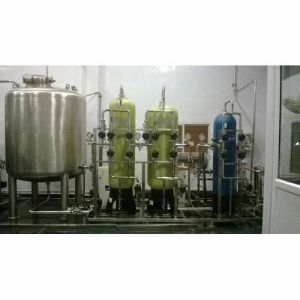
Commercial DM Water Plant
20,000 Per Piece
1 Piece (MOQ)
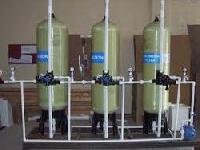
Industrial Demineralization Water Treatment Plant
Get Price Quote
We are offering industrial demineralization water treatment plant. we are the leading manufacturers and suppliers of a wide range of de mineralized plants that are widely appreciated for salient features like high performance, excellent purification of water with removal of calcium and magnesium salts. We do complete quality and performance measures of these de mineralized plants before delivering to our valuable clients in several production industries.
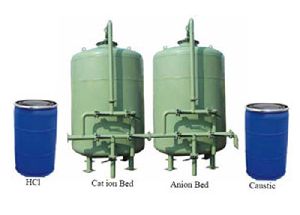
Demineralised Water Plant
Get Price Quote
DeionizersAQUA LIFE GUARD RO System is a leading provider of deionization solutions. Our water deionizers are rugged, pre-engineered, pre-assembled, standardized units that minimize expensive installation and start-up costs. We have designed our Deionization systems to maximize the efficiency and repeatability of the unit during the service and regeneration modes The Process of Deionization or Ion-exchangeIn the context of water purification, ion-exchange is a rapid and reversible process in which impurity ions present in the water are replaced by ions released by an ion-exchange resin. The impurity ions are taken up by the resin, which must be periodically regenerated to restore it to the original ionic form. (An ion is an atom or group of atoms with an electric charge. Positively-charged ions are called cations and are usually metals; negatively-charged ions are called anions and are usually non-metals). The following ions are widely found in raw waters:Ion Exchange ResinsThere are two basic types of resin - cation-exchange and anion-exchange resins. Cation exchange resins will release Hydrogen (H+) ions or other positively charged ions in exchange for impurity cations present in the water. Anion exchange resins will release hydroxyl (OH-) ions or other negatively charged ions in exchange for impurity anions present in the water. The application of ion-exchange to water treatment and purification. There are three ways in which ion-exchange technology can be used in water treatment and purification: first, cation-exchange resins alone can be employed to soften water by base exchange; secondly, anion-exchange resins alone can be used for organic scavenging or nitrate removal; and thirdly, combinations of cation-exchange and anion-exchange resins can be used to remove virtually all the ionic impurities present in the feedwater, a process known as deionization. Water deionizers purification process results in water of exceptionally high quality. DeionizationFor many laboratory and industrial applications, high-purity water which is essentially free from ionic contaminants is required. Water of this quality can be produced by deionization.The two most common types of deionization are : Two-bed deionization Mixed-bed deionization Two-bed deionizationThe two-bed deionizer consists of two vessels - one containing a cation-exchange resin in the hydrogen (H+) form and the other containing an anion resin in the hydroxyl (OH-) form. Water flows through the cation column, whereupon all the cations are exchanged for hydrogen ions. To keep the water electrically balanced, for every monovalent cation, e.g. Na+, one hydrogen ion is exchanged and for every divalent cation, e.g. Ca2+, or Mg2+, two hydrogen ions are exchanged. The same principle applies when considering anion-exchange. The decationised water then flows through the anion column. This time, all the negatively charged ions are exchanged for hydroxide ions which then combine with the hydrogen ions to form water (H2O). Mixed-bed deionization In mixed-bed deionizers the cation-exchange and anion-exchange resins are intimately mixed and contained in a single pressure vessel. The thorough mixture of cation-exchangers and anion-exchangers in a single column makes a mixed-bed deionizer equivalent to a lengthy series of two-bed plants. As a result, the water quality obtained from a mixed-bed deionizer is appreciably higher than that produced by a two-bed plant. Although more efficient in purifying the incoming feedwater, mixed-bed plants are more sensitive to impurities in the water supply and involve a more complicated regeneration process. Mixed-bed deionizers are normally used to ‘polish' the water to higher levels of purity after it has been initially treated by either a two-bed deionizer or a reverse osmosis unit. Electrodeionization EDI Systems remove ions from aqueous streams, typically in conjunction with reverse osmosis (RO) and other purification devices. Our high-quality deionization modules continually produce ultrapure water up to 18.2MW/cm. EDI may be run continuously or intermittently
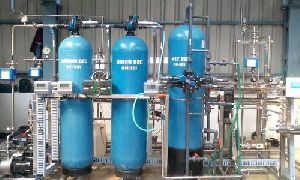
demineralization water treatment plant
Get Price Quote
Keeping the globally accepted packaging norms in consideration, we make certain that the packaging is done under the strict supervision of experts and professionals. We have online payment processing system to avoid security issues. In order to make it more reliable, we have maintained payment logs accessible for the convenience of our customers.
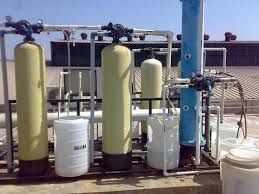
dm water treatment plant
Get Price Quote
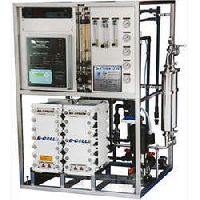
electro deionizer
Get Price Quote
With more and more Indians becoming aware of the hazards of drinking impure water, the demand for effective water purifiers is growing rapidly. The majority of intestinal disorders and infections are caused by water borne micro organisms. As a result, the number of consumers looking for reliable purification options is increasing not only in the metros but also in towns across India. Tap water may contain both biological and chemical contaminants. Biologically contaminated water contains microbes such as viruses, which may result in minor to serious infections, and bacteria and giardia that lead to stomach disorders. Common causes of chemical contamination are improper treatment of industrial waste and pesticide overspill. If chemically contaminated water is used regularly it could lead to serious long term ailments.
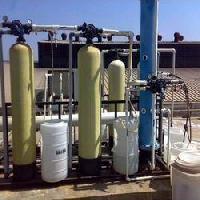
demineralized water plant system
Get Price Quote
demineralized water plant system, wood cooling towers, Mineral Water

filtration plants
Get Price Quote
filtration plants

Demineralization Plant
Get Price Quote
Demineralization Plant, Water Softener

DM Plant
Get Price Quote
DM Plant, colour sorter machine, Ro Plant, sortex machine